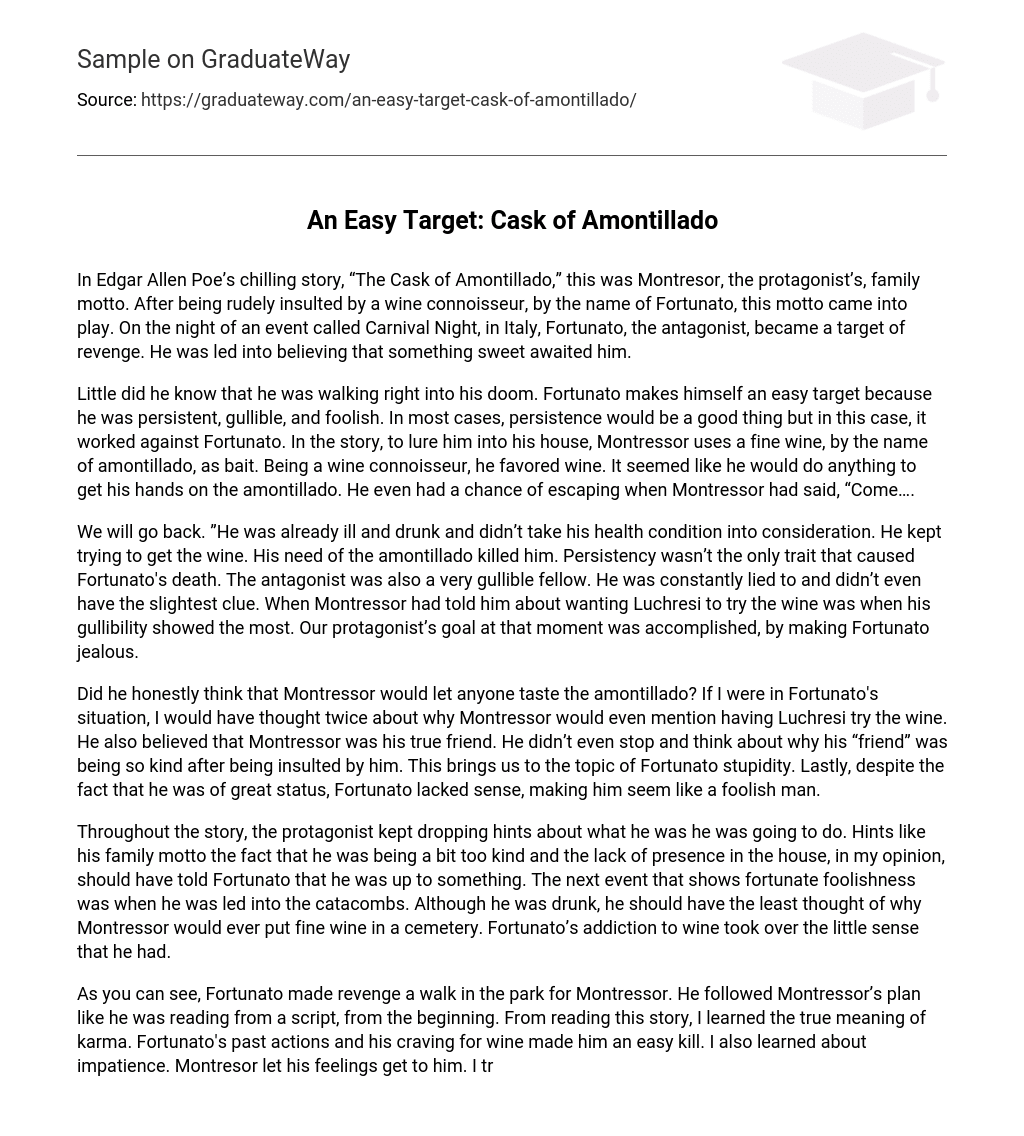In Edgar Allen Poe’s eerie tale “The Cask of Amontillado,” Montresor, the protagonist, embraced his family motto of “No one insults me with impunity.” This motto proved especially significant after Fortunato, a wine connoisseur who had insulted Montresor, became the target of his vengeance. Set during Italy’s Carnival Night, Montresor cunningly lured Fortunato into believing in a delightful surprise awaiting him.
Little did Fortunato know that his persistence, gullibility, and foolishness would ultimately lead him to his doom. Despite the fact that persistence is generally seen as a positive trait, in this instance it served as a detriment to Fortunato. In order to entice him into his house, Montressor cunningly employs a prized wine known as amontillado. As a wine aficionado, Fortunato’s weakness for wine made him an easy target for Montressor’s manipulation. Despite having an opportunity to escape when Montressor beckoned, “Come…,” Fortunato remained oblivious to his imminent fate.
“We will go back,” he said. Fortunato was already ill and intoxicated, but he disregarded his health condition and continued to seek the wine. His relentless pursuit of the amontillado ultimately led to his demise. It was not only Fortunato’s persistence that caused his death; he was also easily deceived. He constantly fell for lies and remained completely clueless. His gullibility was most evident when Montressor mentioned wanting Luchresi to taste the wine. This was the moment when Fortunato’s vulnerability shone through. Montressor successfully achieved his goal of making Fortunato jealous.
Did he honestly believe that Montressor would allow anyone to taste the amontillado? If I were in Fortunato’s position, I would have questioned why Montressor even mentioned having Luchresi sample the wine. Fortunato also trusted Montressor as a true friend and didn’t consider why his supposed friend was being so generous after Fortunato had insulted him. This brings us to the subject of Fortunato’s foolishness. In conclusion, despite his high standing, Fortunato lacked common sense, which made him appear foolish.
Throughout the story, the protagonist dropped hints indicating his intentions. These hints included references to his family motto, his excessive kindness, and his absence from home. In my view, these clues should have made Fortunato suspicious of his plans. Another instance of Fortunato’s foolishness was when he allowed himself to be led into the catacombs. Despite being intoxicated, he should have questioned why Montressor would store fine wine in a graveyard. Fortunato’s obsession with wine overpowered his limited rationality.
Fortunato effortlessly fulfilled Montressor’s revenge plan, obediently following it from start to finish. Through reading this story, I gained understanding of the profound concept of karma. Fortunato’s past misconducts and passion for wine made him an effortless target. Additionally, I acquired insight into the perils of impatience. Montresor allowed his emotions to consume him. Although I genuinely enjoyed this story, my ultimate perspective is that no matter how tempting or satisfying it may seem, revenge is never a viable solution.





